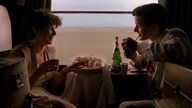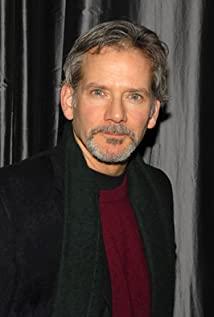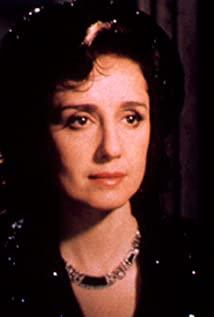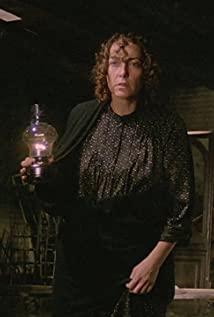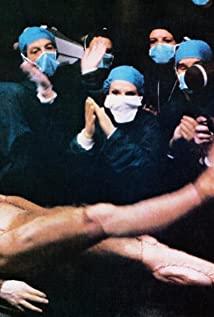There is such a dialogue at the beginning of the film to explain the difference between travelers and tourists.
"Tourists refer to people who feel homesick as soon as they embark on a trip. Travelers may never return home." The heroine, Kitt, mocked herself as a person between travel and tourists. The three protagonists of the film The state of travel corresponds exactly to these three types of people, and their sense of belonging to the world in which they live is completely different. As citizens of the United States, a victorious country after World War II, they were intellectual elites and artists who came to the Sahara in North Africa after the war, exposed to exotic cultures in a noble manner, and spent extravagantly. Victory in World War II brought abundance, but they remained empty.
Both the original book and the film itself revolve around existentialism. The male protagonist Potter, a composer, has a wild nature. He travels to find inner peace, and at the same time hopes to repair his long-term bleak marriage with Kit. Bertolucci inserts a large, phallic-like robotic boom from the opening long shot of the men ashore.
At first we thought it was just the view of the pier, until Potter recounted his dream last night in the cafe, in which the train he was riding in crashed into a mountain of sheets. We only vaguely felt that the boom pointing to the sea, the crashed train, the mountain composed of sheets, the blending of several symbols is also a kind of coincidence, indicating that the male protagonist is about to usher in a catastrophe related to eroticism. The catastrophe is full of fate, and from Potter's words, there is a sense of "fate is at hand".
The living environment was hot and full of flies, and there were worms in the soup. Potter followed the inner guidance and gradually went deeper into one destination after another, and the various external conditions became worse and worse. Perhaps in Potter's subconscious, the unplanned journey will eventually lead him to a protected place, even if it is devastated, as he tells Kit on the cliffside under the red sunset, "Here, the sky is so Weird, thick and solid, as if to protect us from what's behind it." And when it comes to what the two are afraid of, Kit shows that the truth of what the two are afraid of is different. Therefore, Potter still went to Elgar at all costs even when he was seriously ill, and admitted frankly when he was dying, "I'm not here, and that place is really far away."
Potter's heart is lonely, sadly, he is doomed to not reach the other side of his heart.
The sense of distance between Kit and Potter is also far away. As a wife, he can't understand Potter's paranoia. For the people he loves, he goes from the city to the tribe, from the familiar environment to the stranger, from the rational to the emotional. After Potter's death, she was displaced, following the leader of the camel caravan helplessly, withdrawing from a complicated love with Potter and accepting another kind of original, wild love, but this kind of love close to the original instinct It is also complicated.
The film dialectically tells about the lost way of modern people based on the role of Ji Te, whether it is possible for people to experience the most primitive way of life by reducing their dimensionality, and the fact is that any civilization is exclusive, and what greets Ji Te is survival. The predicament of her lover is swallowed up by disease, she faces the ruthless wind and sand of nature, and she is helpless without language, just as Kit returned to the cafe after several trials and confessed her lost way in front of the elderly.
At the beginning of the film, the characters' conversations in the hotel often use mirrors to show their faces. This way of viewing both the front and the back is to allow the audience to observe the characters from two different angles. The world is more like a fantasy
It also means that screen characters will always have less angle and field of view to observe the world than the audience. The mirror-like window carries the communication between people, how small this window is. The space level also matches the overall emptiness of the film. There are husband and wife relationships and friend relationships among the three people, but most of the time they share a room. Although it is for the convenience of privacy, it is actually depicting people. Being alone as an individual. The only time they shared the same bed was when her husband was dying.
In general movies, a fixed shot is required to present close-ups, but in this film, all the things that require attention are presented in a fluid way, inserted in the process of moving the camera or in a brief fall. Just as the big phallus at the beginning was interspersed above the head when the characters appeared, this big phallus became a landmark and a sign of the original place in the movie.
The sunset, hotel lights, bonfires, and the red light reflected by the desert on the faces of the characters have become the necessary atmosphere for the characters to visit the soul. Throughout, red symbolizes the moment when the characters approach the other side of their hearts.
The film's plot also has an air of mystery that is only partially revealed. We don't know what happened in the hours after Potter escaped from the prostitute that night, only to see his abject return, the climax of his escape from the pursuit is hidden. Ji Te, who followed the camel caravan to the territory, and the leader of the team clearly accepted each other, but why they were expelled by the local women and children in the form of a musical instrument singing, the audience and Ji Te did not know why, but the highest way to express emotion Isn't it also a kind of numbness that is calmly accepted. What happened to the playboy Tanner, who was separated from his companions. After many days, he was still wandering in North Africa alone, with a beard that seemed to grow overnight, and the clues about growth were hidden lines. Therefore, the complete presentation is of little significance, and only the partial is sufficient.
The characters are as small as the dust in the desert. We see the sense of fasting displayed by fate, civilization and civilized people, and the protagonists have a strong sense of self-identity, but in fact the meaning of human existence is very weak.
View more about The Sheltering Sky reviews




